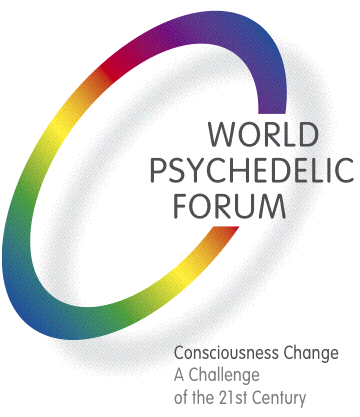Now we become multistate. -Tom Roberts
The full history of psychedelic research – from its early flowering in the 1950s through the scheduling of the substances, the virtual cessation of legally approved research, the drug war, and the rise of all manner of outlaw science practices – may never be written. Those engaged in outlaw science try not to leave paper (or electronic) trails. There’s a parallel to be made to an earlier American persecution fueled by hyperbole, hysteria and fear: the Salem witch trials. The long-term suppression of formal research and personal investigation of psychedelics smacks of peine fort et dure, a particularly excruciating form of torture practiced in Salem. It involved pressing the victim to death under planks with stones piled increasingly on until the ribs break and death ensues.
Quoting the Wikipedia article, “At Salem in 1692, one Giles Corey refused to plead guilty or not – in order to save his property for his widow – and was tortured this way for three days until he called for ‘More weight! More Weight!’ to break his ribs to end it.” In the politics of knowledge (not to mention the economics of property confiscation), one would be hard-put to find a field that this much time and money has been expended to crush. Well, the field didn’t die. In fact, a resurgence is in progress. In many cases, the Nietzschean strategy, “What does not kill me makes me stronger” has paid off. After much persistence and under Rick Doblin’s leadership, the Multidisciplinary Association for Psychedelic Studies (MAPS) is bearing fruit to bring back legitimate research. Drug policy reforms are being sought. The stones are being removed, one by one.
The study of psychedelics as an aboveground field of inquiry is opening up again. Not only is funded research being undertaken once more, a topic well-covered by MAPS, but a new wave of academic researchers will be heard from at the World Psychedelic Forum in Basel, Switzerland on the 21st through the 24th of March 2008. The first Basel gathering was held in 2006; organized around Dr. Albert Hoffman’s 100th birthday, the International Symposium “LSD – Problem Child and Wonder Drug” drew several thousand visitors.
Next year’s Forum continues the event, again featuring many of the leading lights from the psychedelic research frontier along with visionary artists, shamans, cultural commentators, and “witnesses.” Switzerland is already light years ahead of the U.S. in actively seeking sensible drug policies, and the upcoming symposium gives the Swiss a chance to highlight their progressive approach. As conference organizer Gaia Media’s Dieter Hagenbach mentions: “An interesting panel will be the one on drug policy, which is based on The Swiss Four-Fold Approach (The Pillar Model), and on our general governmental policy: ‘Evolving from a policy on illegal drugs to a policy on psychoactive substances,’ which is in our opinion the most advanced drug policy in the world, along with the one in the Netherlands.”
On top of this intriguing panel, next year’s gathering will feature an exciting new program: four sessions presenting 26 papers contributed by over 30 individuals recognized as the “Rising Researchers” of global psychedelic studies. These trailblazing doctors, scientists, and academics represent a unique group – the new vanguard of researchers into a field without an agreed upon name or territory, without formal disciplinary or multidisciplinary standing in academe, and with a notable few university-level courses covering its terrain.
How does one manage to prepare for research in this controversial area? Self-education, a lateral approach, and a low profile are some of the recommendations by Dr. Andrew Sewell in his MAPS article, “So You Want to be a Psychedelic Researcher?” It’s the Joycean strategy: “I will try to express myself in some mode of life or art as freely as I can, and as wholly as I can, using for my defence the only arms I allow myself to use … silence, exile, and cunning.” (A Portrait of the Artist as a Young Man).
The Rising Researchers program for the Basel Forum is being organized by Tom Roberts, Professor Emeritus of Educational Psychology at Northern Illinois University. Roberts is author of the book Psychedelic Horizons, which provides one of the most useful models for framing psychedelic research (and, in fact, any research involving mind-body states other than our ordinary waking one): the multistate paradigm. One of the foremost academics exploring entheogens, Roberts edited Psychoactive Sacramentals with the Council on Spiritual Practices, and co-edited the two-volume scholarly collection Psychedelic Medicine with Michael J. Winkelman.
But perhaps Roberts is best known as professor of Northern Illinois University’s groundbreaking “Foundations of Psychedelic Studies” course; taught since 1981, “Foundations” was the first catalog-listed course at a college or university devoted to the study of psychedelics. There have been other such courses since: Jon Hanna and Richard Glen Boire taught an introduction to visionary plants at the University of California at Davis’ experimental college some years back, and a handful of art- and anthropology-oriented courses have been tried, notably by Constantino Manuel Torres at Florida International University and Stacy Schaefer at the California State University at Chico. But none of these have enjoyed the longevity of Roberts’ pioneering curriculum.
I asked Tom Roberts about his involvement with the Rising Researchers, and his history of teaching psychedelic topics. His answers include a blow-by-blow description of just what it took to get the course going, keep it going, and eventually become part of the official catalog. Roberts has been removing stones for many years now.
DS: What was your inspiration for founding the Rising Researchers Program at the World Psychedelic Forum?
TR: The Rising Researchers Program came about when I suggested it to Dieter Hagenbach of the Gaia Media Foundation. A common developmental stage for established people in academia as they approach retirement (like me) is to nourish younger people and their careers to contribute to the future of the field, so I’m basically following the frequent path. Also, I want to know who’s coming over the horizon as well as seeing the psychedelic super-stars again in Basel. I hope some of them will be able to find some funding and network with each other.
Can you describe the Rising Researchers as a group? What is the range of topics and disciplines that they cover?
Whooo-eee! They are all over the map. There are 26 accepted proposals, though some have more than one author. In this list I am considering only the first authors – 21 males. There’s a cluster of five Ayahuasca studies; two or more on biological-medical, salvia, drug policy, biology-pharmacology, end-of-life psychotherapy, addiction and misuse, and clinical uses; along with a scattering of other topics from language to law. The research spans many countries, including Canada; the United States; Mexico; Brazil; England; Czech Republic; Finland; and Spain.
What are the problems and concerns of the rising researchers, as you see them?
Getting their topics of study accepted and recognized by their institutions, securing funds, and explaining their interests to colleagues, family, and friends. These researchers also face problems getting published, cope with feelings of reluctance or fear of disclosing their interests, and suffer the chilling effect of institutions and government policies. I hope the professional recognition and mutual support of the Basel conference will help in these matters.
You have anchored a career-long position in academia teaching a course on psychedelics. What obstacles have you encountered along the way?
When I started teaching what is now titled “Foundations of Psychedelic Studies,” I felt a mixture of risk-taking trepidation, the excitement of novelty, and self-righteous enthusiasm. In 1982, the course’s title was “Psychedelic Research”; a few years later it became “Psychedelic Mindview,” and two years ago became “Foundations of Psychedelic Studies.” I do particularly like the phrase “Psychedelic Studies” because it covers the academic waterfront and helps express the interdisciplinary nature of the field.
The first time I offered the course (then as a special topics seminar), I advertised it by putting up posters around campus. In a few, days my Assistant Department Chairman received a call from the Assistant Provost (or did we call the position “Dean” then?) inquiring whether this was a topic appropriate for a course. Luckily, Grinspoon and Bakalar’s paperback edition of Psychedelic Drugs Reconsidered had just come out, with a 40-plus page annotated bibliography. I photocopied the bibliography (it’s still one I often consult) and sent it to the Assistant Provost to show that there was significant scholarly and scientific research in the field. I also told him that I thought determining the content of courses at Northern rested with each department, not the Provost’s office, and that I didn’t think his job description included censorship. I invited to discuss this with him at an open and full university Council meeting. A couple days later he called my Assistant Department Chair to tell him he was inquiring only because someone had asked about it. As one of my friends said, “They know they have a bulldog over there.” That was the first hurdle.
The second hurdle was longer and more difficult. Few of my colleagues in the College of Education knew much about psychedelics, and it seems to me that the number became fewer over the years as the faculty became more conservative in several ways. Additionally, the anti-drug crusades cast an interest in psychedelics into a shadow. But since I had been teaching the course for several years, eventually many years, they let me continue, as it would be hard to say “No” to what had been taught for so long. My guess is that some of them thought, “Poor old professor Roberts is still going on with a topic that died years ago. Let’s let him go until he retires.” I would say the resistance was passive rather than aggressive, as is usually the case in academia.
To my surprise, around 2002 (I’m not sure of the year) a new Assistant Chair of my department suggested I go through the steps of trying to get the course listed in the regular catalog. Until that time I had taught it variously as a special topics seminar, directed readings, or as a workshop. So, I did all the paper work, submitted it to the College Curriculum Committee, and it was turned down. About this time, there was talk of establishing a new doctoral program in my department and in the College. This was traditionally one based on open-minded inquiry. After I harrumphed around and said I’d speak up against the new program because the College gave evidence of not being open to innovative ideas, I was invited to make some changes and resubmit the proposal. (I really have no idea whether my threats had any impact or not; the reconsideration may have been due to the intervention of my supportive Assistant Chair and Chair of the Department.)
Well, the College Curriculum Committee approved it and sent in on to the University Curriculum Committee, who also approved it and sent it on the Board of Trustees, who rubber-stamped it. At each step, I was running through my mind, imagining how I would make presentations to the various groups, but hadn’t had to do so after the first turn-down. I wonder whether I would have had the guts to do these things if I hadn’t had tenure or if the situation in the late 70’s and early 80’s were as suppressive as it is now. Here’s a vote for tenure!
While overcoming these hurdles, I would feel self-righteous, angry, frustrated, et cetera. Since then, I try to lighten up and realize that the people who are impediments are good people who simply don’t know the evidence about psychedelics, so I try, with varying amounts of success and failure, to see these as opportunities to teach and to approach them in a kindly way rather than confrontational – in hopes of teaching them rather than intimidating them. I don’t want to give the impression I was entirely alone during this process. There were usually colleagues and graduate students who supported me, individually, and in the last few years some of the “new hires” know what psychedelics offer mind development, so it has been personally helpful to have their interpersonal support.
I had hoped that once I broke the ice for a psychedelic course, more people would follow at other universities and colleges. “After all,” they can say, “if they’re teaching about psychedelic studies at NIU, we ought to be able to teach it at XXU.” While universities like to see themselves as leading edge and innovative, they often judge themselves by the rule: “Is anybody else doing it?” If not, they usually don’t like to take the lead. I know of only one instance of a psychedelic course at a 4-year university and another at a community college.
I hope this meeting will encourage others to offer similar courses or at least add psychedelic units within existing courses. If these meetings make psychedelics more academically acceptable over the years, as I hope they will, more people might be willing to offer such courses. A good tactic is to offer such a course as I did, as selected topics, directed reading, or a topical seminar. A university or research institute could really grab the lead by being the first to establish a Mind-body Studies Institute or Psychedelic Research Center. I wish I were hiring for such a place, as there are plenty of professors and grad students looking for them.
The reason I use the word “studies,” rather than “science” or “research,” is to include the whole broad field (the arts, too). Psychedelics are certainly one of the most interdisciplinary fields – arguably the most so. Being able to offer a psychedelics course gave me direction in my work and took into me all sorts of interesting fields and topics. I think offering this course was the most distinctive use I could make of my career. I may be the world’s weirdest educational psychologist!
The Rising Researchers
Here is a sampling of what some of the Rising Researchers will be presenting in Basel:
Alexander Belser received a Master of Philosophy in Criminological Research from Cambridge University, and was Director of Georgetown University Prison Outreach Programs. He notes: “Despite the prevalence of psychoactive drug use amongst incarcerated men and women, criminologists are baffled when posed with a straightforward question: Why do so many prisoners use mind-altering substances, and for what purposes?” His Cambridge dissertation is titled “Doping the System:
Stories of Drug Use by UK Prisoners.” During the course of this study, the author conducted in-depth interviews with ten prisoners enrolled in a drug treatment program at Her Majesty’s Prison The Mount, a medium security facility north of London. These interviews solicited criminal offending histories as well as detailed narratives of “inner” drug experiences from the prisoners’ subjective perspectives.
Gurpreet Singh Chopra, M.D., is co-investigator with Dr. Charles Grob in the Harbor-UCLA psilocybin project, “Effects of Psilocybin in Advanced-Stage Cancer Patients With Anxiety,” sponsored by the Heffter Research Institute. He will present “Psychedelic Use & Misuse: A Contemporary Perspective On How Psychedelics May Be Used Safely”, under the rubric of harm reduction. His concern is that, “while there is little question as to the compelling mystical and transpersonal experiences these agents catalyze, psychedelics, when misused or used inappropriately, can leave severe psychological scars.” He will discuss “how psychedelics can be utilized safely in order to maximize potential benefits and to reduce the incidence of psychological adverse events (so called ‘bad trips’).” There’s a podcast from Chopra recorded at the 2006 Palenque Norte talks at Burning Man.
Alicia Danforth is a research associate at the Harbor-UCLA Medical Center, attached to the psilocybin project mentioned above. At the Rising Researchers forum, Danforth will present “a case study, and possibly several brief vignettes, about some of the more remarkable occurrences we’ve witnessed so far. It is unlikely that the results of the study will be published prior to the conference, so my intention is simply to share some of the interesting anecdotal material.” Danforth spoke at the Palenque Norte Playalogue series at Burning Man this year on “Building a Model for Sustainable Psychedelic Research.”
Kevin Feeney is an attorney by trade, currently working in social services as an HIV Case Manager. His presentation will “offer an analysis of how the practices of traditional peyotists and the on-going survival of peyote as a species may both be protected using available legal mechanisms.”
Yiannis Ferras will talk about his research, “A qualitative study of drug experiences among young non-problematic users.”
Tom Froese graduated with an Masters of Engineering in Computer Science and Cybernetics from the Department of Cybernetics at the University of Reading. He is currently engaged in doctoral research at the University of Sussex in the study of social cognition by using an evolutionary robotics methodology. His presentation is titled “Toward a Scientific Re-enchantment of the Concrete,” a discussion of the enactivism paradigm in cognitive psychology – “a paradigm which conceives of the mind as bringing forth the world of our experience through embodied action. One of its central themes is the irreducibility of conscious experience and the consequent necessity of cultivating first-person methodologies drawn from psychological, phenomenological and contemplative traditions.”
Andrew Sewell, M.D., will be presenting preliminary information about his research on “Response of Cluster Headache to Seeds Containing Lysergic Acid Amide.” The research is currently in the data collection phase. Regarding his study, Sewell says: “The psilocybin/LSD/LSA for cluster headache is a great story because a patient group discovered it – just like shamans in the old days, not us clever doctors!”
Manuel Villaescusa will present on the topic, “Subjective Short-Term Effects of Ayahuasca Intake in a Western Psychotherapeutic Setting.” According to Villaescusa, “This research is a qualitative study [that] explores how Ayahuasca use is becoming integrated in western society and psychotherapy practice, how it is changing from its traditional Amazonian origins, and what psychedelic therapy possibilities it can offer outside of its original culture.”
The Basel Forum will bring these diverse, international researchers together – to share their research, to offer mutual support, and to meet their psychedelic elders. And to the pioneers like Tom Roberts, who have been working above and underground for decades, the Rising Researchers offer encouragement that their challenging work has planted many seeds, and that a new, hardy crop is sprouting from their efforts.
Visit Diana Slattery’s Blog: http://mazerunner.wordpress.com














